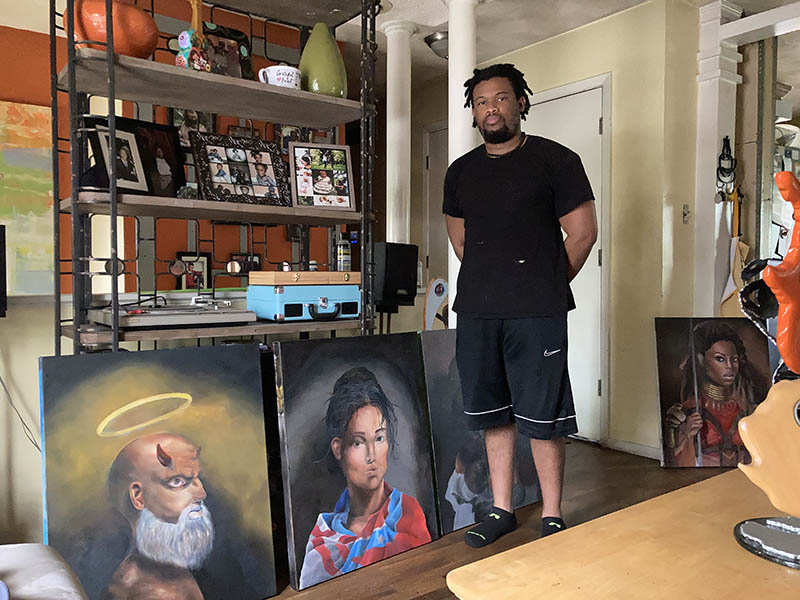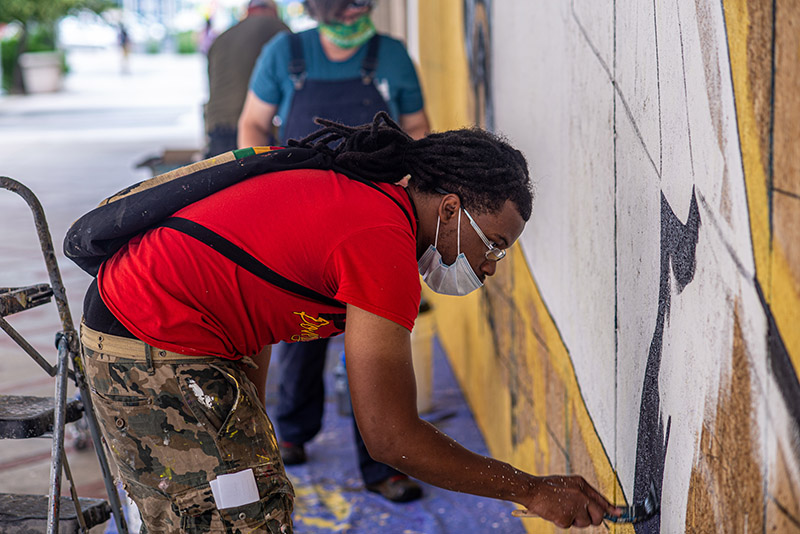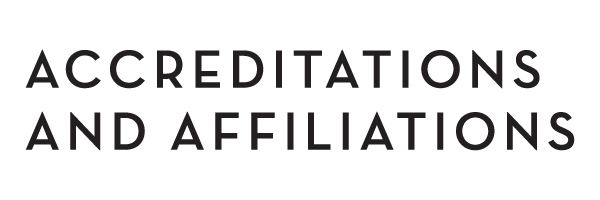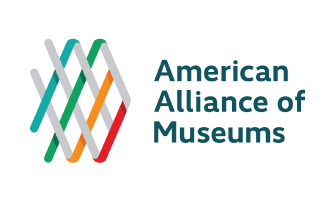Published May 10, 2021
Meet the Artist: Mechi Shakur
Among the paintings in “RESPONSE: Images and Sounds of a Movement,” the new exhibition opening June 5 in the Indiana State Museum’s Legacy Theater, is “Blkkk Lives Don’t Matter,” a powerful work showing a police car rolling over the names of some of the many Black people who have died at the hands of police – and their civil rights.
The artist Mechi Shakur, whose given name is Demetrius Green, is a 26-year-old self-taught painter who went to Arsenal Technical High School to study culinary arts but found that he had more talent with a paintbrush.
He painted “Blkkk Lives Don’t Matter”—with four helpers—in two days. It initially hung on boards that covered windows at the Indiana Repertory Theatre located at 140 W. Washington St.
Shakur has had his work on display in the Murphy Building, Central Library and the Indiana Landmarks Center, and you can find him on Instagram.
-

-

Photo courtesy of Arts Council of Indianapolis
In an interview, he talked about his work and what he wants to convey.
Tell me about your work in the exhibit.
When Black Lives Matter started, people countered it with “all lives matter.” So, I named it “Blkkk Lives Don’t Matter” because they were saying the reason they were offended by Black Lives Matter is because they felt like it was singling out Black people and excluding everybody else. If you’re mad at Black Lives Matter for that reason, you should be just as mad about hearing “Blkkk Lives Don’t Matter.”
Where did the idea come from?
This was a painting I had done before. It was a little more graphic. Instead of names, it was actually bodies that the car was running over. But since it was public art, we agreed to switch it up. The original idea was from two or three years ago. When they approached me to do a Mural for Racial Justice, that was the first one that came in mind.
When people saw you painting outside at the theater, did you get reaction?
A lot of people said they liked and appreciated the art. They said it was meaningful.
What do you want people to take away from it?
Even in some cases where people do break the law, I feel like as soon as that happens, they (the police) disregard the life altogether. If they broke the law, yeah, they should be in jail, but that doesn’t justify them losing their life. You see so many people get out of jail and turn their life around. Now that possibility is gone completely.
Tell me about you. How long have you been painting?
This is my fifth year painting seriously. I’m self-taught. I started painting in 2016. Then I broke my foot, so all I really could do was practice a lot. I started getting into shows, and that’s pretty much it.
How did you know you could do this?
When I was younger, I drew a lot, and I was in art magnet schools. I got away from it until a couple of years ago, then I started painting. I didn’t know if I was good at it, and then once I saw that I was, I stuck with it.
Back to “Blkkk Lives Don’t Matter,” what did you think when they said they were going to put it in a museum?
I was excited. I didn’t think all of that would come from this. I just thought it would be up a couple of days at the theater and that would be pretty much it. It was really surprising.
What would you like to see happen next?
I think it could lead to something. I’ve been submitting my work to competitions. My next goal is to start winning awards.
About RESPONSE:
Like much of the nation, Indianapolis experienced days of protests in June 2020. Artists stepped up to quickly express their frustrations and hopes. Now, one year later, the Indiana State Museum, Arts Council of Indianapolis and the Indianapolis Public Library are teaming up to present exhibitions of murals painted by these artists after the protests, and hold discussions designed to increase community understanding of what occurred and why. Visit Legacy Theater on Level One from June 5 to Sept. 6, 2021 to see the six murals painted by Indianapolis artists and business owners. This exhibit is free to the public.








